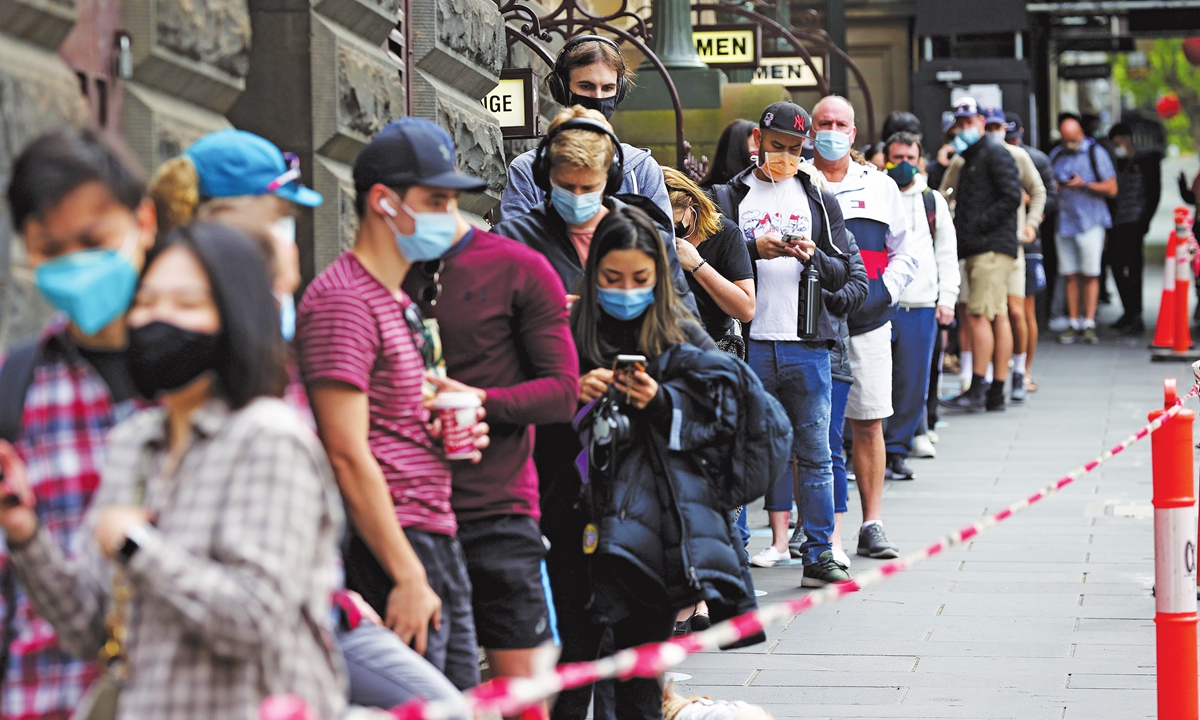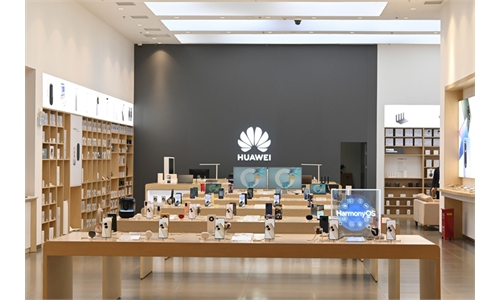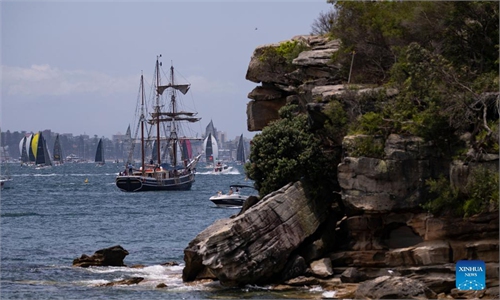Australia seeks to ease COVID-19 test rules as cases hit records

People wait in line at a walk-in COVID-19 testing site at the Melbourne Town Hall in Melbourne, Australia, on December 27, 2021. Photo: IC
Australia will seek to make urgent changes to COVID-19 testing rules to ease pressure on test sites as infections surged and the country's most populous state reported a near doubling in daily cases.
Prime Minister Scott Morrison said on Wednesday Australia needed "a gear change" to manage overburdened laboratories and get people out of isolation. He called a snap meeting of the national cabinet on Thursday.
"We just can't have everybody just being taken out of circulation because they just happen to be at a particular place at a particular time," Morrison said during a media briefing.
Morrison's plan would prioritize clinically urgent cases, in a bid to cut long lines at test sites and waits for lab results, which can currently take three to four days. The proposed rules would rely more on rapid antigen tests, redefine close contacts of confirmed cases to those who live in the same household, and only require PCR tests for people with symptoms. Close contacts would have to isolate for seven days.
A growing number of countries, including the US and Britain, have shortened the recommended isolation time for asymptomatic cases.
The proposed new testing requirements comes as Queensland promised to relax rules for interstate travelers with domestic arrivals needing only a negative rapid antigen test to gain entry from January 1 rather than the PCR test.
Morrison said A$375 million ($271 million) will be used to buy millions of additional rapid antigen test kits.
Queensland's so-called "tourism tests" came under severe criticism from New South Wales after holiday travelers crowded its testing hubs, causing delays in results of several days.
Even with soaring infections, some testing centers in Sydney were closed following the public holidays and those that were open had long walk-in and drive-in queues.
Anderson had a PCR test after a friend he caught up with just before Christmas tested positive. When he went for a follow-up test, the site was closed.
After seeing long lines at other testing hubs, he settled for a rapid antigen test at home, but with soaring cases he is concerned he might struggle to get a PCR test, as required, ahead of his next chemotherapy appointment on January 11, 2021.



